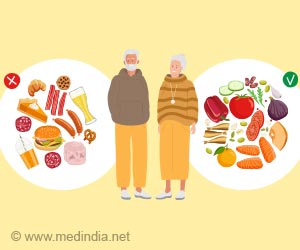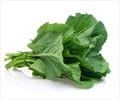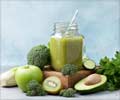Discover the debate surrounding ultra-processed foods and their link to diseases, as experts argue some can be part of a healthy diet while others warn against their consumption.
- Some nutritionists argue that certain processed foods, such as baked beans and wholemeal bread, can be part of a balanced diet
- The Nova food classification system groups foods according to their processing methods, with ultra-processed foods containing additives like colorings and preservatives
- Studies have warned of the dangers of consuming too many ultra-processed foods and their link to diseases, but there is debate over whether all processed foods should be considered unhealthy
Healthier Processed Goods Can be Part of a Balanced Diet
Top nutritionists have recently argued that some foods are being unfairly maligned and that baked beans, fish fingers, and wholemeal bread can all be part of a balanced diet. Tomato-based pasta sauces, wholegrain cereals, and fruit yoghurts were also given the green light and labeled as 'healthier processed goods'.Countrywise Shopping Trends of Ultra-Processed Foods
According to the Journal of Public Health Nutrition, the Irish shopping basket contains 45.9% ultra-processed foods, placing Ireland third after the United Kingdom (50.7%) and Germany (46.2%). Portugal and Italy had the lowest levels of consumption, with 10.2% and 13.4%, respectively. Processed foods certainly provide nutrients for many people in Ireland while also being handy and economical.Nova Food Classification System to Group Foods
Under the Nova food classification system, anything edible made with colorings, sweeteners, and preservatives automatically falls into the ultra-processed category. The Nova food classification system was created in 2009 by a Brazilian scientist as a way to group foods according to the processes they go through.Link Between Ultra-Processed Foods and Diseases
Hundreds of scientists have since utilized it to investigate the link between eating habits and disease. Several studies have warned of the dangers of eating too many ultra-processed foods, such as biscuits, cakes, crisps, ready meals, sausages, chips, and soft drinks.Debating the Definition of Ultra-Processed Foods: Healthy or Harmful?
Some experts have expressed concern that the label is ambiguous and portrays "perfectly fine" food as "unhealthy." Some countries, including France, Belgium, and Brazil, have used ultra-processed foods in official guidance, advising people to eat less of them. However, Safefood Ireland provides calorie, salt, and sugar guidance, as well as recommendations to consume fruits, vegetables, and whole grains. The British Nutrition Foundation (BNF) charity, on the other hand, has warned against designating ultra-processed foods as banned in dietary guidelines. Wholemeal bread, wholegrain morning cereals, and baked beans, for example, are typically regarded as ultra-processed, but 'they can be a convenient and economical source of several vital nutrients,' according to the BNF.Healthy Eating on the Go: Embracing Healthier Processed Foods
BNF spokeswoman Bridget Benelam said, "For many of us when we get home after a busy day, foods like baked beans, wholemeal toast, fish fingers or ready-made pasta sauces are an affordable way to get a balanced meal on the table quickly. These may be classed as ultra-processed but can still be part of a healthy diet. Choosing healthier processed foods is one way that can help people fit healthy eating into their lives."Source-Medindia












